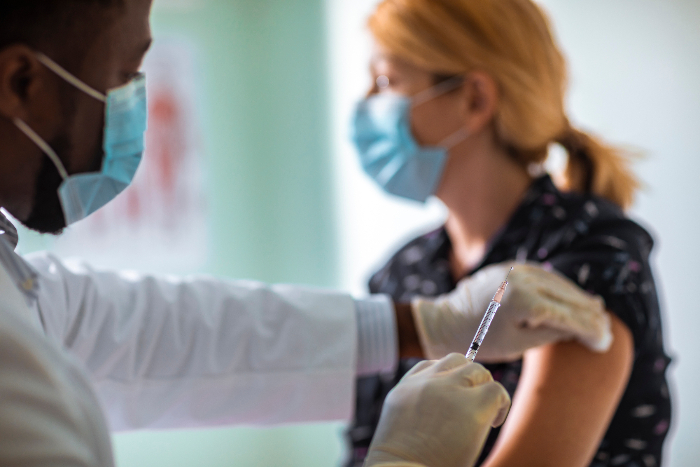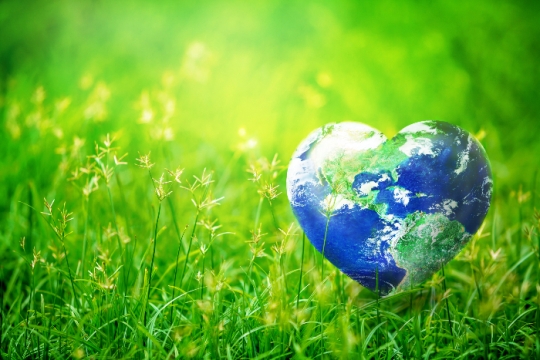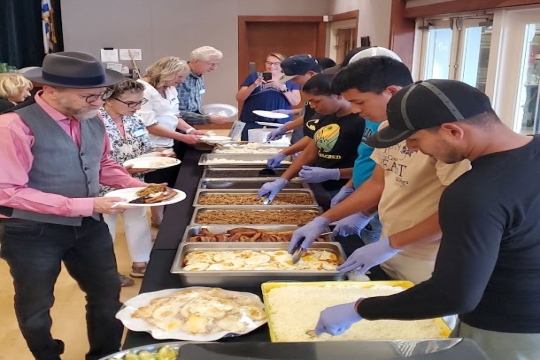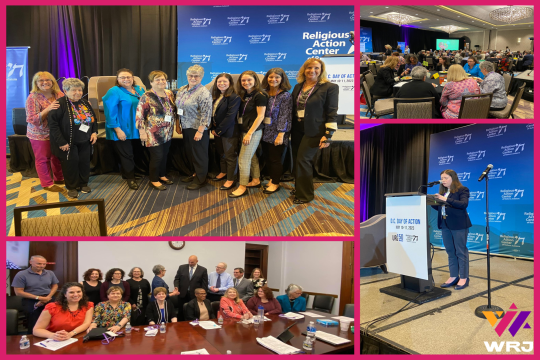
As a young child, I thought that October 1st was a national holiday: Flu Shot Day. When I saw the September page was torn out of our monthly calendar, I knew that I’d be spending the afternoon at the pediatrician’s office getting the vaccine engineered to fight against the strain predicted to be most prevalent that season. Getting a flu shot, and all recommended childhood vaccines, meant more to my family than just following the Centers for Disease Control and Prevention (CDC)’s guidance and doctors’ recommendations. My mother was immunocompromised; after having a kidney transplant a few years after I was born, she had to take immunosuppressant drugs every single day to make sure that the transplanted organ would stay healthy and strong. Even though I had a fully functional immune system, as did everyone else in my family, we knew that we needed to go the extra step and get the proper vaccines every year to keep Mom safe. It wasn’t about me; it was about all of us. Later, I would learn that getting vaccinated wasn’t just a Rein family value, it was a Jewish value.
August is National Immunization Awareness Month in the United States, dedicated to raising awareness of the importance of vaccines for all ages. In the era of the COVID-19 pandemic, it’s imperative for everyone to do their part in educating not only themselves, but others as well to fight back against the spread of misinformation. Anti-vaccination ideology, or vaccine hesitancy, is not endemic to COVID; in fact, in January 2019, the World Health Organization (WHO) named vaccine hesitancy one of the top ten global health threats. Throughout their history, people have had mixed reactions while acclimating to vaccines, which makes sense: it’s important to be a critical consumer of science and research. However, vaccines undergo rigorous testing before they’re authorized in any capacity. The United States has authorized three vaccines for emergency use: Pfizer BioNTech, Moderna, and Johnson & Johnson, and Canada has authorized those three in addition to AstraZeneca/COVISHIELD. At the time of this blog post’s publication, The Mayo Clinic (via the CDC) reports that about 49% of Americans are fully vaccinated against the virus, and the Canadian government has communicated that almost 60% of its population is fully vaccinated. The Johns Hopkins Bloomberg School of Public Health posits that to achieve herd immunity and for life to return to the way it was pre-pandemic, 70% of the population in a given region must be vaccinated. We still have work to do to hit that number.
The ways through which we’ll overcome this pandemic are deeply rooted in Jewish tradition and values. Firstly, it is our halachic obligation to protect our health: pikuach nefesh, the sanctity of life, is most sacred. Saving a life takes precedence over all mitzvot; we are granted life from G-d and must protect that gift at all costs. Beyond the individual, one of my favorite things about being Jewish is the importance of community, kehillah. Judaism can’t be done alone; for example, you need 10 people for a minyan, a beit din consists of three people, and I’ve never heard anyone say, “Sorry, we don’t have any room at our Shabbat table this week.” Whether it’s coming together for a Pesach seder or attending a virtual baby-naming ceremony with 50 other squares lighting up on a Zoom screen, one of the most beautiful parts of Judaism is how we unite to share significant moments. In this time of social distancing and isolation, we’ve innovatively employed online programs to preserve the community we hold so dearly.
Jewish commentary on epidemics and vaccines throughout the years can guide us in our decision-making. From the days of early epidemics and plagues, we have always been instructed to protect our health and shield ourselves from harm. Furthermore, cleanliness practices from ritual hand washing to deep-cleaning for Pesach have been noted to have contributed to fewer Jewish deaths during widespread public health catastrophes, like the Bubonic Plague in the Middle Ages. We can apply this thinking to today’s social distancing and use of face masks. When vaccines came on the scene as a public health intervention, in the case of smallpox, Rabbi Yisroel Lipschutz, a leading 19th-century Ashkenazi rabbi, determined that despite any risk associated with the vaccine, one should still get inoculated against the highly fatal virus. (By the way, the WHO declared that smallpox was eradicated around the world in 1980 because of the widespread success of the vaccine.) In 1998, vaccinations were established as refuah bedukhah, medical interventions of proven effect, that should not only be used to protect yourself from disease but to protect the community at large.
Months ago, when I stood in a line waiting to get my first dose of Moderna, I was overwhelmed by immense senses of excitement and pride. As a public health geek, I was thrilled to be contributing my part to herd immunity and was grateful for the tireless efforts of physicians and scientists who designed the rapid intervention and the bravery of the volunteers who participated in clinical trials. As a member of my family, I felt more connected to my parents than ever before in carrying on the tradition of vaccinating myself for the greater good. As a Jewish woman and proud staff member of Women of Reform Judaism, I was honored to take on the mitzvah of vaccinating myself against COVID-19. To me, this is an act of chesed, loving-kindness, that encompasses so much of what I’ve learned from my time at WRJ. Vaccinating aligns strongly with the mission of fostering spirituality, sisterhood, and social good: when we achieve herd immunity, we are stronger together.
Hayley Rein is the Leadership & Communications Associate at Women of Reform Judaism. She graduated from Stony Brook University with a dual degree in Psychology and Sociology and previously spent a year serving in the Avodah Jewish Service Corps. She is passionate about public health, Jewish community building, and convincing people that fresh bagels should never be toasted.
Related Posts

Summer Advocacy Action Items: In Pursuit of “Liberty and Justice for All”

Women of B’nai Israel of Sacramento Responds to Migrant Crisis

